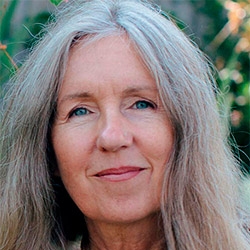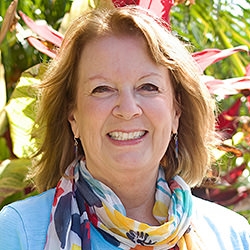

Search Results: marshall rosenberg
-
-
-
- Learn the essentials of NVC from its founder, Dr. Marshall Rosenberg
- Discover how to connect with others with empathy, integrity, and peace
- Understand the origins of NVC and how to apply it within yourself and in your life
- Experience how empathy supports healing in your most intimate relationships— and in the world at large!
-
- Adapted from Marshall’s bestselling book and taught in his own words
- Learn how to utilize empathy to safely confront powerful emotions
- Discover how to overcome the blocks to compassion
- Open to your natural desire to enrich the lives of those around you!
-
Here are some very basic forms and distinctions of NVC. It covers the 4 D's, OFNR, some NVC distinctions, tips, quotes from Marshall Rosenberg, and "feelings and needs" lists, and more. As with any art, these rudiments necessarily must be learned, practiced, understood, embodied and then let go of so as not to become rote and block creativity.
-
When you say yes, check if you are saying it out of submission. Similarly, when you say no, are you saying it genuinely or out of rebellion? Marshall Rosenberg calls this a loss or erosion of goodwill which can destroy or undermine relationships. In this video, Rachelle Lamb shares how submission and rebellion in communication can diminish your power.
-
Experience John Kinyon's application of NVC Founder Marshall Rosenberg's 4-part model of reconciliation and healing, a model he developed over the course of decades of work with people around the world who have experienced the deep pain of violence.
-
NVC is a process. It’s the willingness and effort to empathize with both sides of a conflict, encouraging each side to empathize with the other, and then seeing what solution can arise, working together to meet the needs of both sides. Empathy is the experience of being not separate as well as being an individual. It's seeing we're all part of the one ever-flowing consciousness of being, all unique expressions of this unity.
-
Marshall Rosenberg used to talk about every situation with the same level of joy a child might feel. This may seem impossible at first! But when you focus on all the ways something is hard, you miss out on the full experience and remove your sense of choice. In this video, Mary shares several benefits of positivity and lots of examples along the way.
-
-
-
Marshall Rosenberg suggests that there are two requests that are the most transformative to relationships, (1) What’s alive in both of us? and (2) What would make life more wonderful for both of us? This telecourse recording offers an easy-to-digest overview of how carefully crafted requests inspire joyful relationships.
-
Inspired by a talk given by Marshall Rosenberg, Jim offers an interactive exploration of powerful strategies for making NVC an integral part of your everyday life.
-
Trainer tip: NVC focuses on shared human values and needs, and encourages the use of language that increases good will -- plus avoidance of language that contributes to resentment or lowered self-esteem. It emphasizes taking personal responsibility for choices and improving the quality of relationships as a primary goal. For today, focus on making observations without moralistic judgment in at least two of your interactions.
-
We can't alone (nor with lone communities) transform the hidden structures of violence and domination. Dialogue alone isn't disruptive enough. We can easily be in dialogue with Trump supporters while the planet burns up, millions are still hungry, and we go extinct. NVC seriously risks reinforcing vast inequities and abuses if we're not radically engaging systemic constraints, and impacts of our choices that go beyond our immediate circle. Read on for ways to leverage NVC practices to expand true social change.
-
There are four components to the Nonviolent Communication (NVC) model, as developed by Marshall Rosenberg, PhD. The 4-Part NVC Process can guide you to express how you are, or they can be used to empathically receive how another is.
-
Learn how unacknowledged fear can seem like aggression and a way to shift it.
-
Listen in as Mary deftly blows the role of facilitator wide open in this excerpt from her very popular 2021 course, Facilitate NVC Groups with Joy and Confidence. She also covers a variety of useful tips such as what to do if you feel lost or confused, how to trust your gut, and ideas around utilizing empathy for yourself!
-
-

Quick Links
Subscription Preferences
Stay In Touch!
Looking for ways to keep up with NVC Academy news, get special offers, free resources, or words of inspiration? Here are five ways to stay engaged:













